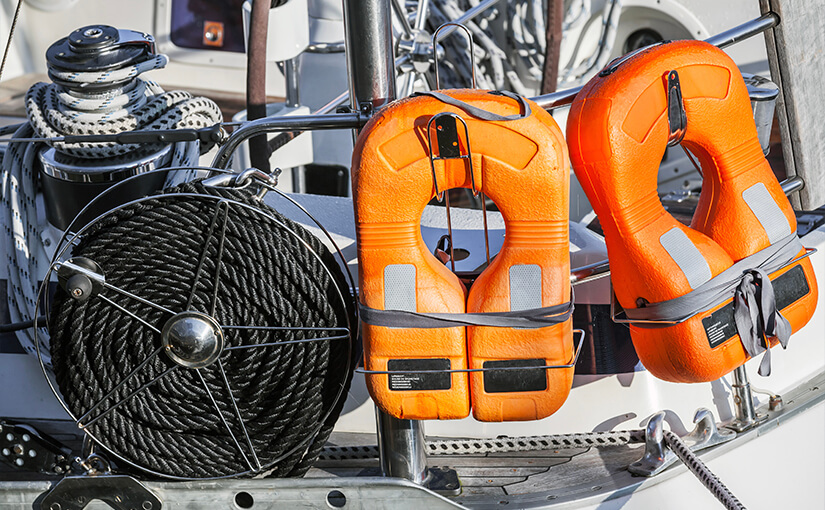Like any water activity, boating comes with its own risks and dangers. We can’t stress it enough: the open waters must always be treated with the utmost caution and respect. That said, boating is a relatively safe hobby that can be both fun and be fulfilling – as long as you operate by the rules. As a beginner, we know you can’t wait to have fun and we’re excited for you! But before you sail away, here are some basic boat safety guidelines to learn.
- Check the weather forecast
- Always check the weather forecast before leaving the dock or marina. Learn the marine weather warnings, the wind and tide conditions, and the forecast for rain or thunderstorms. Knowledge of weather conditions is crucial to your safety in the water. New boaties should only venture out on clear weather first – even experienced boaties don’t like to risk in bad weather.
- Follow a pre-departure checklist
- Preparation is another key to safe boating. Cover your bases by making a pre-departure checklist that includes safety devices like life jackets, whistle and air horn, distress signals, first-aid kit, toolbox, and a fire extinguisher. Also include a status check on fuel and oil, pumps and bilges, battery, dock lines, and anchor. Make sure to tick off everything on your list before setting out.
- Create a Float Plan
- A float plan is a safety document that you leave to a trusted person every time you go on a boating trip. It contains information that is critical to a rescue plan in case something goes wrong during your trip. Information that should be included in the float plan are the vessel specifics like make and model, registration details, vessel size, and engine type.
Information regarding all the passengers should also be listed including their names, addresses, and an emergency contact. Lastly, the float plan should state the route that you are taking, expected departure and return times, and any planned stops. - Tag along boat mate
- Even experienced skippers will take a back up man or boat mate that they can rely on during boat trips. Having an extra pair of eyes on navigation, boat status, and other safety requirements is invaluable. In the case of illness or another unforeseen incident (knock on wood), your boat mate can take over the skipper duties and take your boat to safety.
- Master navigation rules
- Next to knowledge of the weather conditions, mastering the navigation rules is your next defence against boat accidents. Familiarise yourself with the speed limits, rights of way, safe distance between boats, and the navigation marks in the area. It’s also advisable to bring marine maps if you’re planning to travel far out from the coast.
- Learn how to swim
- Another danger that you might encounter while boating is capsizing or falling overboard. In which case, you’ll have to rely on your swimming skills in order to survive. In the unfortunate event of either, you can increase your chances of survival by learning how to swim properly or polishing your swimming skills if you already know the basics.
- Practice proper launching and retrieving
- If your boat isn’t docked in a port or marina, then you will need to launch and retrieve it to and from your boat trailer. Accidents on the ramp have been known to happen because of boaties who don’t know what they’re doing. These small accidents can also cause inconvenience, usually delays to other boatmen. If you don’t want to cause tension with other boat owners, make sure you know how to launch and retrieve beforehand.
- Don’t mix boating with alcohol
- Just like land travel, operating a water vessel when intoxicated is not a good idea. For one, your judgment will be impaired, increasing the risk of human error. Second, you won’t be in a good state of mind to deal with critical situations on the waters if you are drunk. So, save the beers and celebration until you are back on solid ground.
These safe boating tips apply even to seasoned boaties. As you use your boat more and more frequently, it is also advisable to have it serviced by professionals regularly as an additional safety measure. Regular maintenance will ensure that your boat is always in a good working condition, and more importantly, that you’re safe whenever you hit the waters.
Get Your Dream Boat
Don’t let finance stop you from owning the boat of your dreams, call today on 1300 889 669 and let us find the best boat finance deal for you so that you can get out on the water sooner. You can even apply online, its easy and fast.




